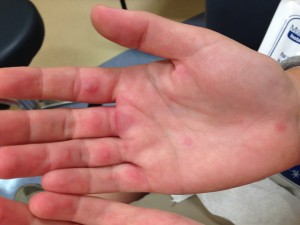Sometimes the Patient is the Teacher
I’m an ePatient blogger, academic, educator and breast cancer survivor. I write about my patient experience in hopes that medical professionals may achieve a better understanding of the patient’s perspective of the medical system. Like any profession, physicians are the experts of their field, but no doctor is the expert of all human pathophysiology. Because of this, the emerging interdisciplinary team of specialists has become a pragmatic step.






